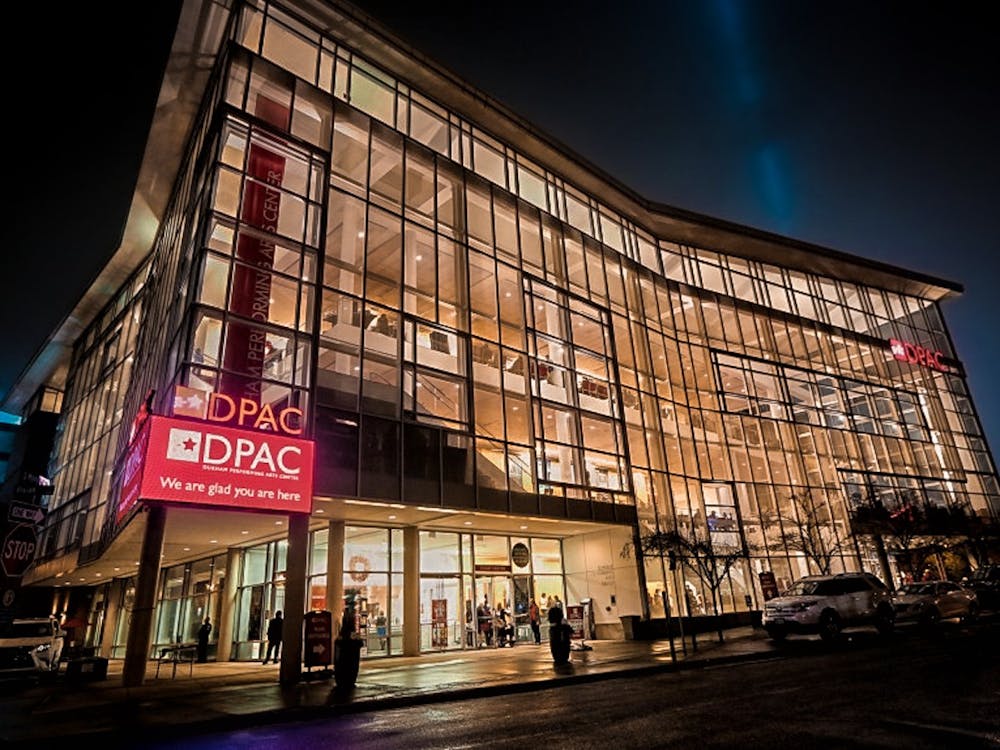Members of the Durham community recently came together to celebrate the city’s 150th anniversary, honoring its past and future through narration, live performance and music.
Durham 150’s closing celebration took place at the Durham Performing Arts Center Nov. 2 and drew an audience of 2,000 people, capping off a yearlong commemoration of more than 150 events. Twenty-nine individuals were recognized by the Durham Sesquicentennial Honors Commission as having significantly contributed to the city’s history. The year’s festivities were funded by grants from the Durham 150 committee.
“We wanted this event, along with all of the events, to be truly representative of what Durham is,” said Shelly Green, co-chair of the Durham 150 convening committee.
The celebration was to serve as an inspiration for the community to continue their now year-long engagement with Durham, said Patrick Mucklow, the other co-chair of the Durham 150 convening committee. Directed by Stephen Martin, the show featured three large video walls with historical visual materials and narration.
Here are some of the ceremony’s individuals recognized at the ceremony that had connections to Duke:
- One of the nation’s most influential scholars on African American history, John Hope Franklin was honored for his scholarship, teaching and leadership. Franklin was on the NAACP’s legal team for Brown v. Board of Education, the landmark Supreme Court case that declared racial segregation as unconstitutional. The former James B. Duke professor emeritus of history, Franklin is the namesake of the John Hope Franklin Center and Franklin Humanities Institute at Duke.
- Terry Sanford, former governor and U.S. senator of North Carolina, was honored for reforming the state’s education policy through increasing public school expenditures and teacher pay and consolidated North Carolina’s public universities. Sanford served as Duke’s president from 1966 to 1985, between his terms as governor and senator.
- An internationally known scientist, Monte Moses was recognized for his and his wife Connie’s efforts to save the Carolina Theatre from demolition. Moses researched biology and genetics as a professor of anatomy at the School of Medicine.
- Mary Duke Biddle Trent Semans, Trinity ‘39, was rewarded for her philanthropy in supporting artists and helping to found several art institutions, such as the Nasher Museum of Art. In addition, Semans was one of the first women to serve on Durham City Council and was the first woman to serve as the city’s mayor pro tempore.
Correction: A previous version of this article incorrectly listed Stephen Martin as Trinity '95. The Chronicle regrets the error.
Get The Chronicle straight to your inbox
Signup for our weekly newsletter. Cancel at any time.

